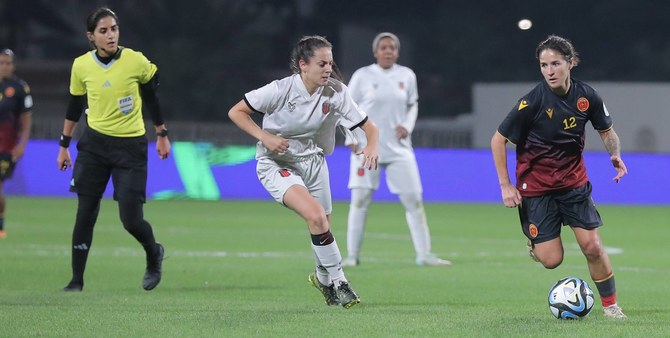Lack of historical resources means that there is some debate over which club is officially the oldest in the nation.
Football is such an integral part of culture in the Kingdom that the history of the game in the country dates back to the era before the formation of the modern Saudi state.
However, a lack of historical resources means that there is some debate over which club is officially the oldest in the nation.
Al-Wehda in Makkah is one that claims to be the first. Though the club acknowledges it was officially registered in its current form in 1946, its official website quotes historian Mohammed Ghazali as saying it was originally founded under the name Al-Hizb in 1916.
Jeddah side Al-Ittihad believes it is the Kingdom’s oldest club, however, with an official founding date of Dec. 26, 1927, almost five years before the unification in September 1932 that created the modern Saudi state.
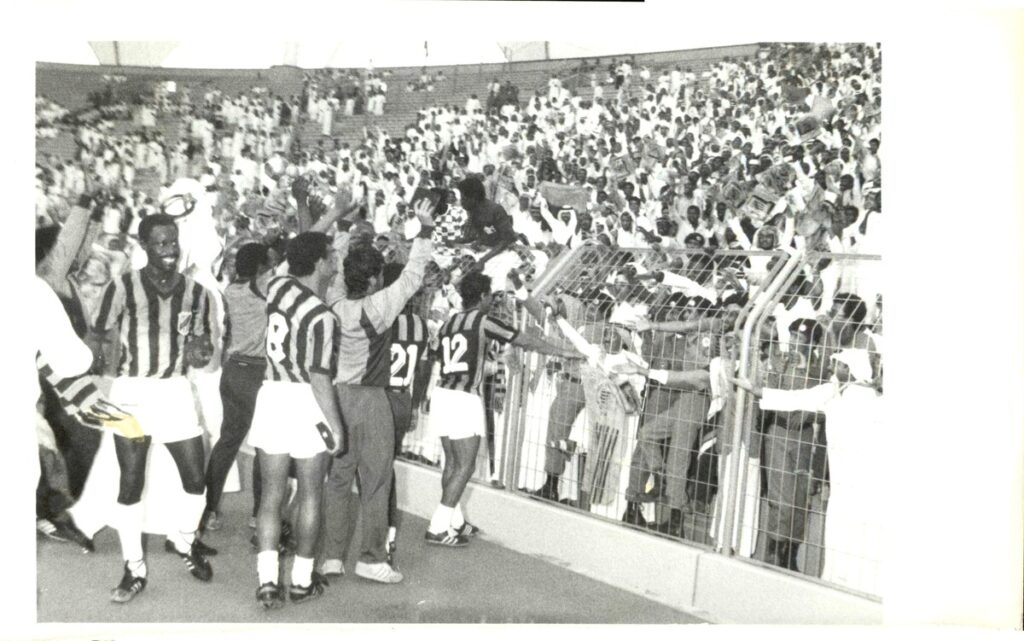
Given such uncertainty about the exact origins of the game in the country, in 2023 the Saudi Arabian Football Federation launched the Saudi Football History Documentation Project.
Saudi historians and international experts nominated by FIFA are working to research and record a definitive, agreed-upon history of football in the Kingdom.
The committee announced on Sept. 16 the completion of the first phase of the project, finding that the national team played a total of 92 matches and the clubs played more than 7,000 matches between 1902 and 1982.
But much of Saudi Arabia’s footballing history is clear.
Al-Ahli club, for example, is another one of the Kingdom’s oldest clubs, having been founded in 1937. Other early organizations include Al-Ettifaq (1945), Al-Shabab (1947), Al-Riyadh (1953), Al-Nassr (1955), and Al-Hilal (1957).
The SAFF was established in 1956 as the governing body for the sport in the country. That same year, the Kingdom gained international football recognition when it joined FIFA, allowing local teams to participate in global competitions.
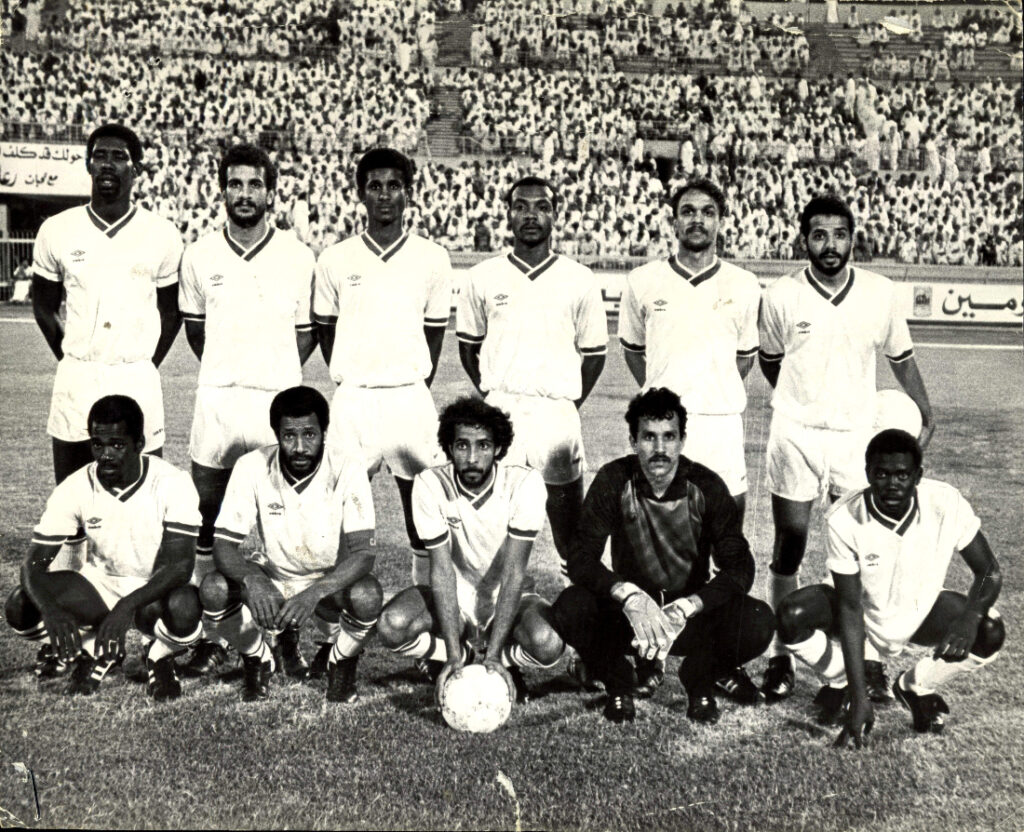
In 1957, the Kingdom’s national team played its first competitive international match, a game against Lebanon in Beirut that ended in a 1-1 draw.
While there have been domestic national leagues in Saudi Arabia since the 1970s, the Saudi Pro League was not established in its current form until 2008.
In 1984, the Saudi national team won the AFC Asian Cup for the first time, with Majed Abdullah and Shaye Al-Nafisah claiming the goals in a 2-0 win over China in the final. The Kingdom retained the trophy four years later.
Saudi Arabia made their debut at the FIFA World Cup in 1994, which was held in the US, and reached the round of 16. Their success continued when they were once again crowned Asian Cup champions in 1996.
In more recent years, the Kingdom has continued to make strides in football, including the introduction of the first domestic women’s league in 2020, followed by the SAFF Women’s Cup in 2023.
Fuad Anwar is a former member of the Saudi national team who began his career in 1991 with Al-Shabab. He is perhaps best remembered for his performances during the 1994 World Cup, in which he scored two goals that helped the Saudis qualify for the knock-out stage. He also participated at the 2000 FIFA Club World Cup with Al-Nassr.
He told Arab News that three football clubs in particular shaped the football scene in the Kingdom.
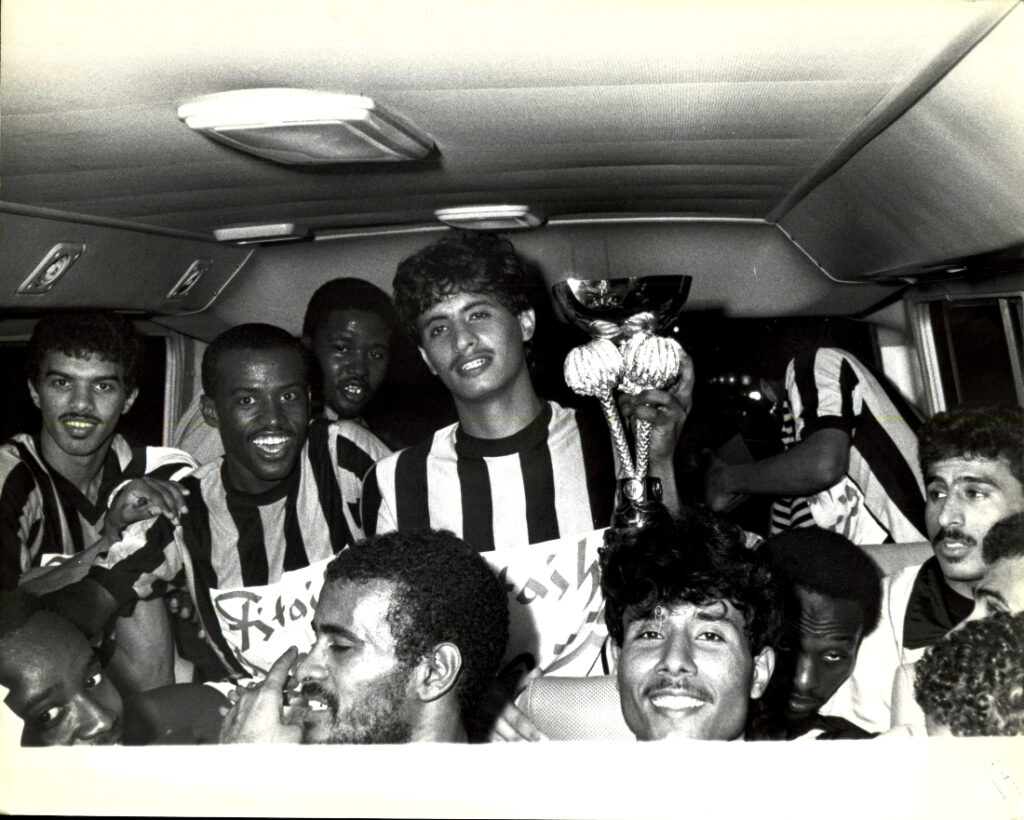
“There was a cultural shift in sports because of Al-Ahli, Al-Ittihad and Al-Wehda,” Anwar said. “The world became more accepting of Saudi Arabia and the region to be a part of the football scene … football culture became relevant in every part of the country, from Riyadh and beyond.”
Anwar highlighted in particular the efforts of Prince Khaled Al-Faisal, Prince Abdullah Al-Faisal, and Prince Faisal bin Fahad to create a successful foundation for sports culture in the Kingdom.
Prince Khaled Al-Faisal played an instrumental role in the development of football in the region, having come up with the idea of launching a tournament for the Arabian Gulf in the late 1960s. Prince Abdullah, meanwhile, served as co-founder and chairperson of Al-Ahli, and Prince Faisal held a number of positions with domestic and regional sporting organizations.
Ahmed Eid Al-Harbi, a former Al-Ahli player who now chairs the SAFF’s board of directors, highlighted Prince Abdullah’s significant role in the development of Saudi football and sport in general.
He told Arab News the prince devoted much of his time to the development of youth to benefit the future of sport not only in the Kingdom but in the wider Gulf and Arab world, and on the continental and international stages.
“He didn’t merely adopt the club (Al-Ahli) for the sake of exercising a sport or achieving trophies, he spoke of the club as a university established to nurture and spotlight sports talents, giving them the attention and care they deserve,” said Anwar.
Nader Al-Sahleh, 61, a Saudi from the Eastern Province, told Arab News that he has witnessed the evolution of football in the Kingdom through the years, all the way back to the 1970s when, as a child, he played the game with neighbors and schoolmates in parks and fields.
“Those were beautiful, irreplaceable days filled with challenges, such as participating in neighborhood football leagues and Ramadan tournaments,” he said.
“These experiences impacted my life, introduced me to friends I still cherish today and created wonderful memories that I wish could return.”
Football in the Kingdom has evolve tremendously over the years, Al-Sahleh said, and “as a result, Saudi teams now compete to win, as seen in our victories in the Asian Cup and our dominance in Asian football.”
He added: “Crown Prince Mohammed bin Salman has stated his ambition to make the Saudi League one of the top 10 leagues in the world, which is a testament to the development of Saudi football.
“Currently, Saudi Arabia is constructing massive stadiums to host the Asian Cup and even the FIFA World Cup. This is just a brief overview of the progress of Saudi football, and we are grateful to our government, led by the (king) and the crown prince, for their continued support. May our sports continue to advance and prosper.”
source/content: arabnews.com (headline edited)
______________
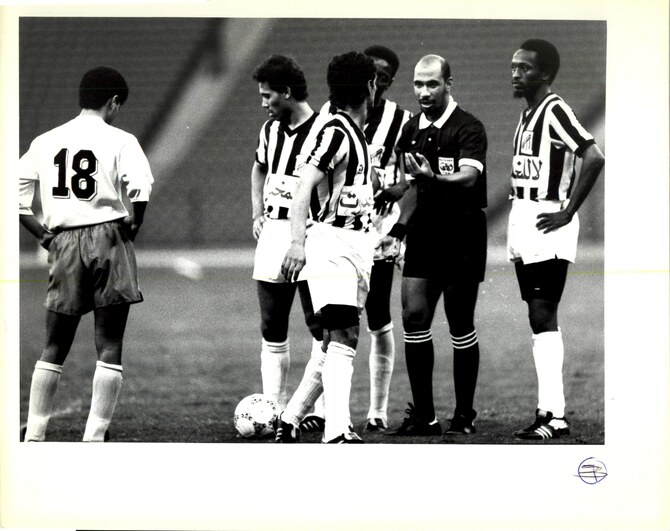
__________________
SAUDI ARABIA
